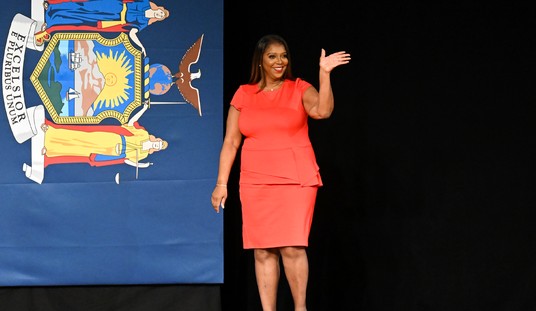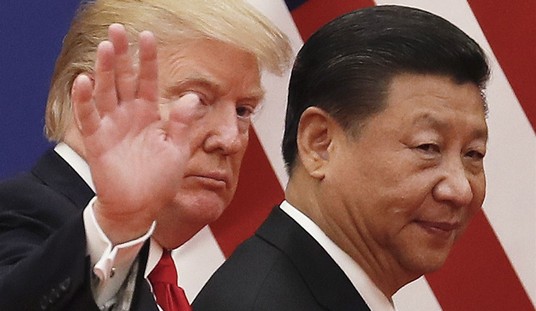On Tuesday, Google CEO Sundar Pichai repeatedly denied that there is any political bias in the way he runs the company. In the same breath, however, he acknowledged that Google’s YouTube considers the Southern Poverty Law Center (SPLC), a far-Left smear factory, a “trusted flagger.” Conservative non-profits and a Ph.D. psychologist who monitors the influence of big tech blasted this hypocrisy.
“Google is a company that oversees 90 percent of the world’s search traffic and yet lists the Southern Poverty Law Center as one of its ‘trusted flaggers.’ Keep in mind that this is the same SPLC that holds half of America in utter contempt,” Lt. Gen. (Ret.) William Boykin, executive vice president of the Family Research Council (FRC), told PJ Media.
“If Google wants to avoid the censorship label, then partnering with the SPLC sends the opposite message,” Boykin declared.
He would know. In 2012, a terrorist targeted the FRC, breaking in with semi-automatic weapons and a bag of Chick-fil-A chicken sandwiches, intending to kill everyone in the building and place a sandwich by their heads. That terrorist later testified to the FBI that he took the FRC address from the SPLC’s “hate map.”
The SPLC lists mainstream conservative and Christian groups along with the Ku Klux Klan on their list of “hate groups.” Earlier this year, they paid a $3.375 million settlement to a Muslim reformer, Maajid Nawaz, after falsely branding him an “anti-Islamic extremist.” About 60 organizations are considering defamation lawsuits against the SPLC, which has openly admitted its “aim in life is to destroy these groups.”
Undeterred, the SPLC launched a campaign urging social media companies to “Change the Terms” to silence dissent from their liberal agenda by branding conservative and Christian voices “hateful.” (For instance, the SPLC has marked a section of the Catechism of the Catholic Church as illustrative of a “hate group,” effectively branding 1 billion people with the “hate” label.)
“The SPLC is a political defamation machine that has little respect for freedom of thought and expression,” the FRC’s Boykin told PJ Media. “The SPLC wants an Internet that exists in an air-tight vacuum — one devoid of the oxygen of free exchange and democratic discourse.” He decried the SPLC’s efforts as “a demand to acquiesce to neo-Marxism.”
“Google would do well to follow the example of the FBI, DOJ, U.S. Army and others who have parted ways with the SPLC,” Boykin insisted.
Jeremy Tedesco, senior counsel at Alliance Defending Freedom (ADF), another group falsely maligned by the SPLC, agreed with Boykin.
“The problem is, they’re relying on an unreliable source. The words ‘trusted’ and ‘SPLC’ are not compatible,” Tedesco said. “There’s a far-Left advocacy group that maligns people they disagree with.”
He argued that Google should “absolutely” drop the SPLC. “All you have to do is read a handful of the articles that have come out in the past year and a half,” Tedesco noted. “SPLC is no longer credible or reliable — they simply attack their political enemies.”
In his testimony, Google CEO Sundar Pichai suggested that conservatives should just accept that the SPLC is a “trusted flagger” and rather than complain, they should point out conservative organizations that Google should add to the “trusted flagger” list.
Tedesco shot down this idea. “Conservative organizations like mine have no interest in recommending conservative organizations that would push conservative orthodoxy on social media,” the ADF lawyer told PJ Media. “We want all sides to be able to express their point of view. That’s what free speech looks like.”
In addition to blasting FRC as a “hate group” — an attack that directly inspired the 2012 terrorist attack — SPLC repeatedly attacked Rep. Steve Scalise (R-La.). James Hodgkinson, the Bernie Sanders supporter who shot Scalise at the Congressional Baseball Game shooting last year, “liked” the SPLC on Facebook.
“Rep. Steve Scalise and Family Research Council — and other victims of Southern Poverty Law Center’s hateful targeting — are clear evidences that Big Tech should place no faith in this organization as an evaluator of hate speech,” National Religious Broadcasters (NRB) President Dr. Jerry A. Johnson told PJ Media.
“This is a case of asking the fox to guard the henhouse,” Johnson quipped.
Dr. Robert Epstein, a Ph.D. psychologist who studies search engine manipulation, supported Hillary Clinton in 2016 but nevertheless condemned Google’s liberal bias. His study of Google bias in 2016 revealed that pro-Clinton bias could account for the Democrat’s popular vote margin.
“It’s just ludicrous for Pichai to say we have no political interest, no political leanings, everything we do is objective. It’s literally absurd,” Epstein told PJ Media.
He would not attack the SPLC himself, but he admitted that “some people see it as highly partisan, some will not.” Even so, “for Google to use an organization some view as highly partisan as a yardstick is an indication of political bias on their part.”
Epstein insisted that everyone — liberals included — should be concerned about Google’s bias and its ability to manipulate public opinion. In fact, he warned conservatives that they need to downplay the idea of political persecution and focus more on the broader societal dangers of unchecked tech giants like Google.
This year, Google might be working with the SPLC to silence conservative voices. Next year, however, big tech companies could suppress speech on the other side of the aisle. At that point, ADF’s insistence that it will not attempt to stifle any speech will become increasingly important.
Even liberals should urge Google to drop the SPLC, because it sets a bad precedent. Groups like ADF are opposed to the very idea of restricting speech in the name of fighting “hate” — and liberals should join them in this cause.
Follow the author of this article on Twitter at @Tyler2ONeil.









Join the conversation as a VIP Member